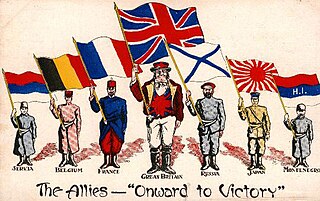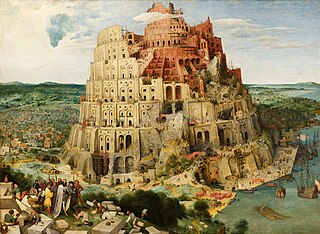John Hutchinson (born 1949) is a British academic. He is a reader in nationalism at the London School of Economics (LSE), in the Department of Government.
John Hutchinson | |
|---|---|
| Born | 1949 (age 74–75) |
| Alma mater | University of Edinburgh, London School of Economics |
| Occupation | Academic |
John Hutchinson was born in Warrenpoint, County Down, Northern Ireland. He graduated with an MA in modern history from the University of Edinburgh, Scotland in 1970; and his PhD in sociology in 1985 from the London School of Economics, where he was supervised by Anthony D. Smith. [1] [2]
Before joining the LSE in 1999, Hutchinson taught in Australia at the interdisciplinary School of Humanities at Griffith University, from 1974 to 1979, and from 1986 to 1999, where he became associate professor.
He is vice-president of the Association for the Study of Ethnicity and Nationalism and deputy editor of Nations and Nations and Nationalism. In addition, he sits on the advisory boards of the Institute for the Advancement of the Social Sciences]at Boston University and of the Study Platform on Interlocking Nationalisms at the University of Amsterdam.
Hutchinson is an interdisciplinary scholar who has contributed to theories of nationalism, the study of cultural nationalism, notably in Ireland, warfare and nationalism.
He is a leading scholar of the ethnosymbolist school (established by Smith) that highlights the role of embedded historical memories in the formation of modern nations. His first monograph was The Dynamics of Cultural Nationalism. He is widely cited by scholars as a pioneering contribution to the field of Irish history and cultural nationalism. [3] [4] [5]
Hutchinson rejected earlier scholarship that tended to conflate nationalism and state-seeking movements. He argued that cultural nationalists should be differentiated from political nationalists, in having as their goal the defence of the nation as a community and its historical distinctiveness rather than on the achievement of a state. He explains how cultural nationalists act as moral innovators, emerging at times of crisis, to form movements that offer new maps of identity based on historical myths, that in turn may inspire programmes of socio-political regeneration. Hutchinson argues such movements operate sometimes as complementary to and sometimes as communitarian alternatives to political nationalism, when statist strategies are defunct. He emphasises the dynamic the role of historians and artists, showing how they interact with religious reformists and a discontented modernising intelligentsia to form national identities.
His second book, Modern Nationalism (Fontana 1994) applies this cultural approach to the analysis of contemporary politics, notably, the relationship of nationalism to the collapse of communism, the religious revival and contentions in multicultural polities. More recently, his Nations as Zones of Conflict (Sage 2005) has sought to combine the focus of ethnosymbolists on the historical embeddedness of nations with the stress of postmodernists on the multiplicity of identities by exploring nations as heterogeneous entities, characterised by persisting conflicts that derive from historic divisions (e.g., civil wars). Hutchinson argues that the role of contestation in nation-formation has been neglected. Such conflicts serve to "fill out" national identities and they give rise to alternative cultural and political visions that offer options to populations at times of crisis. This study has provoked praise and controversy. [6] Eric Kaufmann claims "Hutchinson dramatically expands the boundaries of the ethnosymbolist argument to engage not only 'modernist' but postmodernist critiques of the nation." [7] Although critical of what he sees as Hutchinson's idealist approach, Andreas Wimmer states: "(Hutchinson's) analysis of the layered character of nationalist myths, the internal heterogeneity and conflictual nature of nationalist discourse, as well as the episodic nature of nationalist mobilization represents a considerable step forward towards a more differentiated view of the nature of nationalism." [7]
With Smith, Hutchinson co-edited Nationalism (Oxford 1994) and Ethnicity (Oxford 1996) that have become standard teaching texts for courses on nationalism in the English-speaking world, and his works have been translated into several languages, including Chinese, Norwegian and Turkish.
Nationalism is an idea or movement that holds that the nation should be congruent with the state. As a movement, it presupposes the existence and tends to promote the interests of a particular nation, especially with the aim of gaining and maintaining its sovereignty (self-governance) over its perceived homeland to create a nation-state. It holds that each nation should govern itself, free from outside interference (self-determination), that a nation is a natural and ideal basis for a polity, and that the nation is the only rightful source of political power. It further aims to build and maintain a single national identity, based on a combination of shared social characteristics such as culture, ethnicity, geographic location, language, politics, religion, traditions and belief in a shared singular history, and to promote national unity or solidarity. There are various definitions of a "nation", which leads to different types of nationalism. The two main divergent forms are ethnic nationalism and civic nationalism.
A nation is a type of social organization where a collective identity, a national identity, has emerged from a combination of shared features across a given population, such as language, history, ethnicity, culture, territory or society. Some nations are constructed around ethnicity while others are bound by political constitutions.

A national myth is an inspiring narrative or anecdote about a nation's past. Such myths often serve as important national symbols and affirm a set of national values. A myth is a mixture of reality and fiction, and operates in a specific social and historical setting. Social myths structure national imaginaries. A national myth may take the form of a national epic, or it may be incorporated into a civil religion. A group of related myths about a nation may be referred to as the national mythos, from μῦθος, Greek for "myth".
An ethnicity or ethnic group is a group of people who identify with each other on the basis of perceived shared attributes that distinguish them from other groups. Those attributes can include a people of a common language, culture, common sets of ancestry, traditions, society, religion, history, or social treatment. The term ethnicity is sometimes used interchangeably with the term nation, particularly in cases of ethnic nationalism.

National identity is a person's identity or sense of belonging to one or more states or one or more nations. It is the sense of "a nation as a cohesive whole, as represented by distinctive traditions, culture, and language".
Historiography is the study of how history is written. One pervasive influence upon the writing of history has been nationalism, a set of beliefs about political legitimacy and cultural identity. Nationalism has provided a significant framework for historical writing in Europe and in those former colonies influenced by Europe since the nineteenth century. Typically official school textbooks are based on the nationalist model and focus on the emergence, trials and successes of the forces of nationalism.
Anthony David Stephen Smith was a British historical sociologist who, at the time of his death, was Professor Emeritus of Nationalism and Ethnicity at the London School of Economics. He is considered one of the founders of the interdisciplinary field of nationalism studies.
Civic nationalism, otherwise known as democratic nationalism, is a form of nationalism that adheres to traditional liberal values of freedom, tolerance, equality, and individual rights, and is not based on ethnocentrism. Civic nationalists often defend the value of national identity by saying that individuals need it as a partial shared aspect of their identity in order to lead meaningful, autonomous lives and that democratic polities need a national identity to function properly. Liberal nationalism is used in the same sense as 'civic nationalism', but liberal ethnic nationalism also exists, and "state nationalism" is a branch of civic nationalism, but it can also be illiberal.
Walker F. Connor was Distinguished Visiting Professor of Political Science at Middlebury College. Connor is best known for his work on nationalism, and is considered one of the founders of the interdisciplinary field of nationalism studies.

The Association for the Study of Ethnicity and Nationalism (ASEN) is an international, interdisciplinary association for academics, researchers, students, journalists and others directly concerned with advancing the study of ethnicity and nationalism. It was founded by research students and academics in 1990 at the London School of Economics, where the headquarters of the Association are based. The objectives of the Association are to establish an international and interdisciplinary network of scholars interested in ethnicity and nationalism; stimulate debate on ethnicity and nationalism through the organisation of seminars, workshops, lectures and conferences; disseminate information on scholarly activities concerning ethnicity and nationalism; and publish research on ethnicity and nationalism in its journals Nations and Nationalism and Studies in Ethnicity and Nationalism.
Albanian nationalism is a general grouping of nationalist ideas and concepts generated by ethnic Albanians that were first formed in the 19th century during the Albanian National Awakening. Albanian nationalism is also associated with similar concepts, such as Albanianism ("Shqiptaria") and Pan-Albanianism, that includes ideas on the creation of a geographically expanded Albanian state or a Greater Albania encompassing adjacent Balkan lands with substantial Albanian populations.
Cultural nationalism is a term used by scholars of nationalism to describe efforts among intellectuals to promote the formation of national communities through emphasis on a common culture. It is contrasted with "political" nationalism, which refers to specific movements for national self-determination through the establishment of a nation-state.

Nationalism studies is an interdisciplinary academic field devoted to the study of nationalism and related issues. While nationalism has been the subject of scholarly discussion since at least the late eighteenth century, it is only since the early 1990s that it has received enough attention for a distinct field to emerge.
Among scholars of nationalism, a number of types of nationalism have been presented. Nationalism may manifest itself as part of official state ideology or as a popular non-state movement and may be expressed along civic, ethnic, language, religious or ideological lines. These self-definitions of the nation are used to classify types of nationalism, but such categories are not mutually exclusive and many nationalist movements combine some or all of these elements to varying degrees. Nationalist movements can also be classified by other criteria, such as scale and location.
David Bruce MacDonald is a Canadian political scientist who studies international relations, genocide, and political myths.
Prof. Miroslav Hroch is a Czech historian and political theorist and a professor at the Charles University in Prague.
Ethnosymbolism is a school of thought in the study of nationalism that stresses the importance of symbols, myths, values and traditions in the formation and persistence of the modern nation state.

Christophe Jaffrelot is a French political scientist and Indologist specialising in South Asia, particularly India and Pakistan. He is a professor of South Asian politics and history the Centre d'études et de recherches internationales (CERI) at Sciences Po (Paris), a professor of Indian Politics and Sociology at the King's India Institute (London), and a Research Director at the Centre national de la recherche scientifique (CNRS).
Several scholars of nationalism support the existence of nationalism in the Middle Ages. This school of thought differs from modernism, the predominant school of thought on nationalism, which suggests that nationalism developed largely after the late 18th century and the French Revolution. Theories on the existence of nationalism in the Middle Ages may belong to the general paradigms of ethnosymbolism and primordialism (perennialism).
Daniele Conversi is a political historian, social theorist, academic, and author. He is a research professor at the University of the Basque Country and the Ikerbasque Foundation for Science.